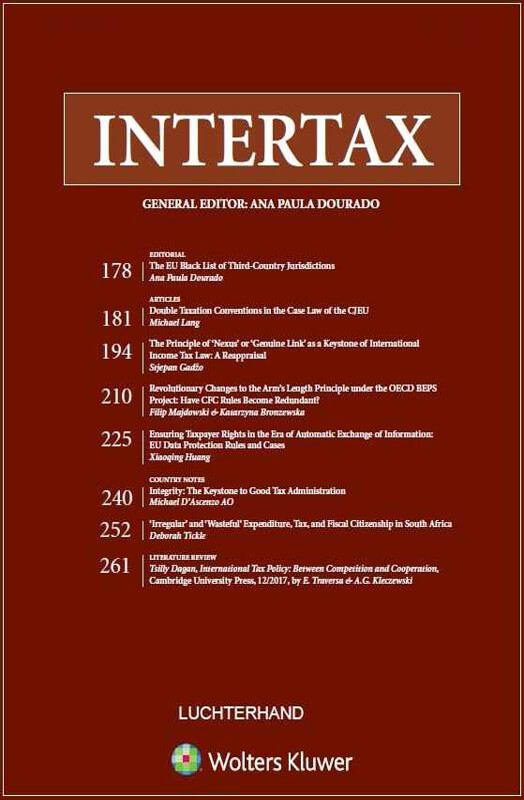Home > All journals > Intertax > 48(12) >

$25.00 - Rental (PDF) *
$49.00 - Article (PDF) *
A.D.M. Janssen
Intertax
Volume 48, Issue 12 (2020) pp. 1155 – 1168
https://doi.org/10.54648/taxi2020115
Abstract
This article describes the recent developments in international trade and VAT. International trade has become an integral part of our economy and the judicial calendar of the EU Court of Justice. An interesting case regarding the intra-Community transport of goods is the Herst case. This case is an example of how the case law of the EU Court of Justice provides some guidance regarding VAT rules concerning the intra-Community supply of goods and chain transactions prior to 1 January 2020. As of 1 January 2020, the new provisions established with the 2020 Quick Fixes are applicable that establish rules, among others, for the attribution of the intra-Community transport of goods to one of the supplies within a chain transaction. Despite the guidance of the EU Court of Justice provided in the Herst case, there continues to be much uncertainty. Although the Quick Fixes seem to provide harmonization and simplification of the EU VAT rules, the strengths and weaknesses of the Quick Fixes will have to be demonstrated in practice. This is also valid with respect to the distance selling rules. In the KrakVet and the Healthspan case, preliminary questions are referred to the EU Court of Justice regarding the transport requirement. This author expects that many new cases will follow. International trade as a trend in EU VAT case law will probably never end.
Keywords
Value added tax, intra-community supply, intra-community acquisition, chain transaction, ascribing intra-community transport to one supply within the supply chain, exemption of supplies of goods dispatched or transported within the EU, transfer of the right to dispose of goods as owner, quick fixes, distance sales of goods, place of supply of goods with transport, Herst, Krakvet, healthspan, EU Court of Justice.
Extract
